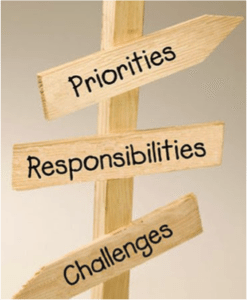
Three Ways to Help a Friend Back to Work


Do you know someone who’s stuck as one of the four million long-term unemployed Americans? A family member, a recent graduate, a neighbor, a friend? With long-term unemployment at 42.1% and Labor Force Participation at only 61.6%, most of us know someone. But what can we do?
At NextJob we’ve coached many people struggling to get back in the job market and we’ve learned some important lessons as the Great Recession produced record numbers of long-term unemployed.
What We’ve Learned
First, it appears that getting stuck can happen to just about anyone, regardless of work experience or education. Job loss is ranked as one of life’s top stressors, alongside divorce and death of a loved one. It can be hard to recover quickly and can lead to a downward spiral.
Second, reemployment rates drop the longer someone is out of work. Employers begin to have more questions about employment gaps and job seekers tend to lose their confidence, sapping motivation and the proactive approach that an effective job search demands.
Last, most people can get back to work, but they often need someone in their corner, someone they can trust and talk with weekly about how it’s going. This accountability factor is critical: It’s why the job search industry has long agreed that job clubs - regular meetings of job seekers to discuss progress - are one of the most fruitful activities.
Schools, Government & Employers
More than anything, though, we’ve learned that the best strategy is preventing long spells of unemployment through preparation. Job seekers rate their job search skills at a D+ - not failing, but definitely depressing. And a sampling of newly-graduated college students rated themselves at an F+ (though the plus seems moot once you’re in the F range). As a society, we need to be more focused on teaching job search skills in high school and college. Government benefit programs can also promote proactivity with smarter work search requirements. And as employers, we can leverage next generation outplacement that can now more than pay for itself in saved unemployment taxes alone.
Three Ways Friends Can Help
Friends and family can also make a big difference using three strategies:
1. Encouragement - Set a time to meet weekly and be a good listener and encourager. Help your friend think through their natural talents, the positive parts of their background and the paid or unpaid accomplishments they’ve had in the past and make sure they have those highlighted in their resume and can speak effectively about them. If they’re depressed, consider discussing professional help.
2. Accountability - Ask your friend what their weekly goals are, and, once they’ve set them, help them stick to the plan each week. Help celebrate every win they have – a new target employer, an updated resume, a network connection, an interview, etc.
3. Connections - Half of all hires are made through a hiring manager’s network. You or someone you know may be the network connection or the encouragement they need: a) to target companies—regardless of whether they have currently posted positions—and b) to start using Facebook, LinkedIn or old fashioned networking to find others who can help get them connected. Proactivity in a job search can increase the likelihood of landing a job by over 60%. If we all work together – schools, government, employers and friends – imagine how many of our unemployed neighbors we can help land on their feet again and reap the benefits and the dignity of a new job.
Free NextJob Services
To support your efforts, for a limited time, we are offering your family and friends access to our online job search training system for free. They can simply go to www.nextjobtraining.com and use the access code “NextJobCovid19” to access resources that will help them set goals, create a resume that gets noticed, target employers, prepare to interview well and much more. As part of our close network this gift is free from NextJob for your family and friends.
For more insights, visit us at www.nextjob.com.


















